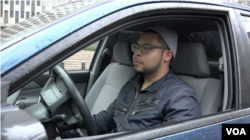The central demographic question to consider this election season is not how influential Latinos have become -- they are well-established as the nation’s largest minority group, comprising more than 17 percent of the U.S. population -- but how they will wield their growing influence in 2016 and beyond.
Will they vote in greater numbers than in 2012? And will they vote overwhelmingly in favor of a democratic candidate similar to the 2012 election (71 percent to 27 percent) -- or in a more distributed fashion similar to 2004 (53 percent Democrat to 44 percent Republican) -- enough to hand a victory to one of the remaining 12 Republican candidates?
Since the Republicans’ 2012 thrashing, pundits have painted 2016 as an important test for a party they say is out of touch with immigrants and communities of color.
Every vote counts
Although U.S. Latinos have voted consistently in favor of Democratic candidates in past presidential elections, the margin by which they vote Democratic matters.
A series of 2016 election simulations conducted by the Center for American Progress Action Fund showed that in key swing states like Florida, a less decisive pro-Democrat vote among Latinos could hand the state and its 29 electoral votes to the Republican nominee, as was the case in President George W. Bush’s 2004 re-election.
Daniel Altschuler, managing director of Make the Road Action Fund, works closely with Latino and immigrant communities on issues of economic and racial justice. He predicts 2016 will more closely resemble 2012 than 2004, largely thanks to the Republicans’ political rhetoric.
“Whereas in 2012 the rhetoric of "self-deportation" from (former presidential candidate) Mitt Romney proved devastating with the Latino electorate, the type of rhetoric that's coming out of the Republican primary candidates right now dwarfs that,” Altschuler said.
“So-called mainstream Republican candidates have been echoing this language in a way that makes it very hard to imagine a situation in which any of these Republican candidates get a significant portion of the Latino vote.”
Voting Republican
For Latinos nationwide, comprehensive immigration policy ranks among the most important issues in the 2016 campaign. But the economy, education, and terrorism are also at the forefront.
For Herminio Mendoza, a self-identified Latino Republican and small-business owner in New Jersey, it’s all about jobs.
Along with his uncle and an employee, Mendoza creates signs and graphics out of a sparsely-decorated warehouse in Jersey City, NJ. Mounted high on the plywood walls are posters with his face and name—he ran and lost a state assembly campaign this November in a heavily democratic district.
Mendoza, who spent the first 17 years of his life in the Dominican Republic, migrated to the U.S. in 1992 in search of a better life. He voted for President Barack Obama in 2008 -- his first election as a naturalized U.S. citizen.
But now he supports the Republican party because, he says, it offers him more opportunities to grow his business.
Mendoza says that Democrats, by comparison, offer welfare and public housing.
“That’s the way I see it, they (Democrats) like to keep you poor. And you don’t fix problems giving people housing,” Mendoza said. “How are you going to pay your rent? It doesn’t work like that. You need a job. You need an education or profession or even a trade, like me.”
Supporting Trump
First-time voter Christian Martinez, 24, agrees. But unlike Mendoza, who supports New Jersey Governor Chris Christie for president, Martinez supports Donald Trump.
He concedes that Trump may “seem” arrogant and out of touch to some -- his proposed immigration policies include building a 3,000 kilometer wall along the U.S./Mexico border and deporting the estimated 11 million undocumented immigrants living in the country -- but argues that businessman Trump has staff of all races and ethnicities working for him.
“He has everyone working for him,” Martinez said. “Even though he’s making the top money off of it, he’s also giving jobs to people.”
Unlikely supporter
Latino Trump supporters like Martinez are few and far between, Altschuler says.
“I would hazard to guess that for every person that you showed me in the Latino and immigrant community who said they perhaps support Donald Trump, we could probably find 50 who would be eager to protest the types of heinous things that Donald Trump has been saying," he added.
Ironically, Martinez, who studies accounting full-time and works on the side as a driver for Uber, suffered a personal blow on immigration policy. His undocumented father, from El Salvador, was deported.
Martinez said he disagrees with Trump specifically on the issue of comprehensive immigration reform, but still thinks Trump has the nation’s best interests at heart.
“That’s just what happens in this country, and you have to work from it. I got affected by that. But in a sense it made me a stronger person,” Martinez said.
“There’s a double-standard for everything and I believe that whoever is here already should stay here and we should limit the amount of people that should come in, because of the terrorism that’s going on.”
Terrorism fears
Both Martinez and Mendoza say security is of high concern, and support implementing stronger background checks on Syrian refugees -- a process that currently takes approximately 18-24 months.
However, they say a refugee policy shouldn’t discriminate against any one group or religion. And unlike Governor Christie, who believes no Syrian refugees should be allowed to resettle at the moment, including "orphans under (the age of) 5," Mendoza welcomes Syria’s youngest.
“If they want to bring 100 million little kids here who are 3 and 5 years old, I will open my arms for them. They’re kids. They’re no terrorists," he said.








